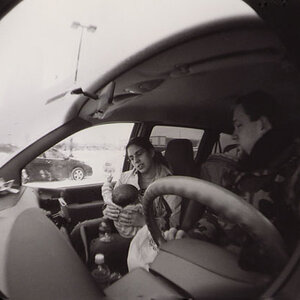UncleRico
TPF Noob!
- Joined
- Dec 12, 2008
- Messages
- 98
- Reaction score
- 0
- Location
- Indiana
- Can others edit my Photos
- Photos NOT OK to edit
It must be the dry winter air, but I have be electrically charged for the last month. It seems like anything I touch causes a static spark. I'm concerned it will damage my camera. I'm pretty sure laptops and other electronics have static guards in place. Is it the same for cameras?
I'd hate to cause damage. I try to touch something else before I grab my camera, but sometimes I forget.
Any advice?
Thanks,
Ryan
I'd hate to cause damage. I try to touch something else before I grab my camera, but sometimes I forget.
Any advice?
Thanks,
Ryan











![[No title]](/data/xfmg/thumbnail/35/35264-5ade32b7036391926536661aeb7491c3.jpg?1619736969)

